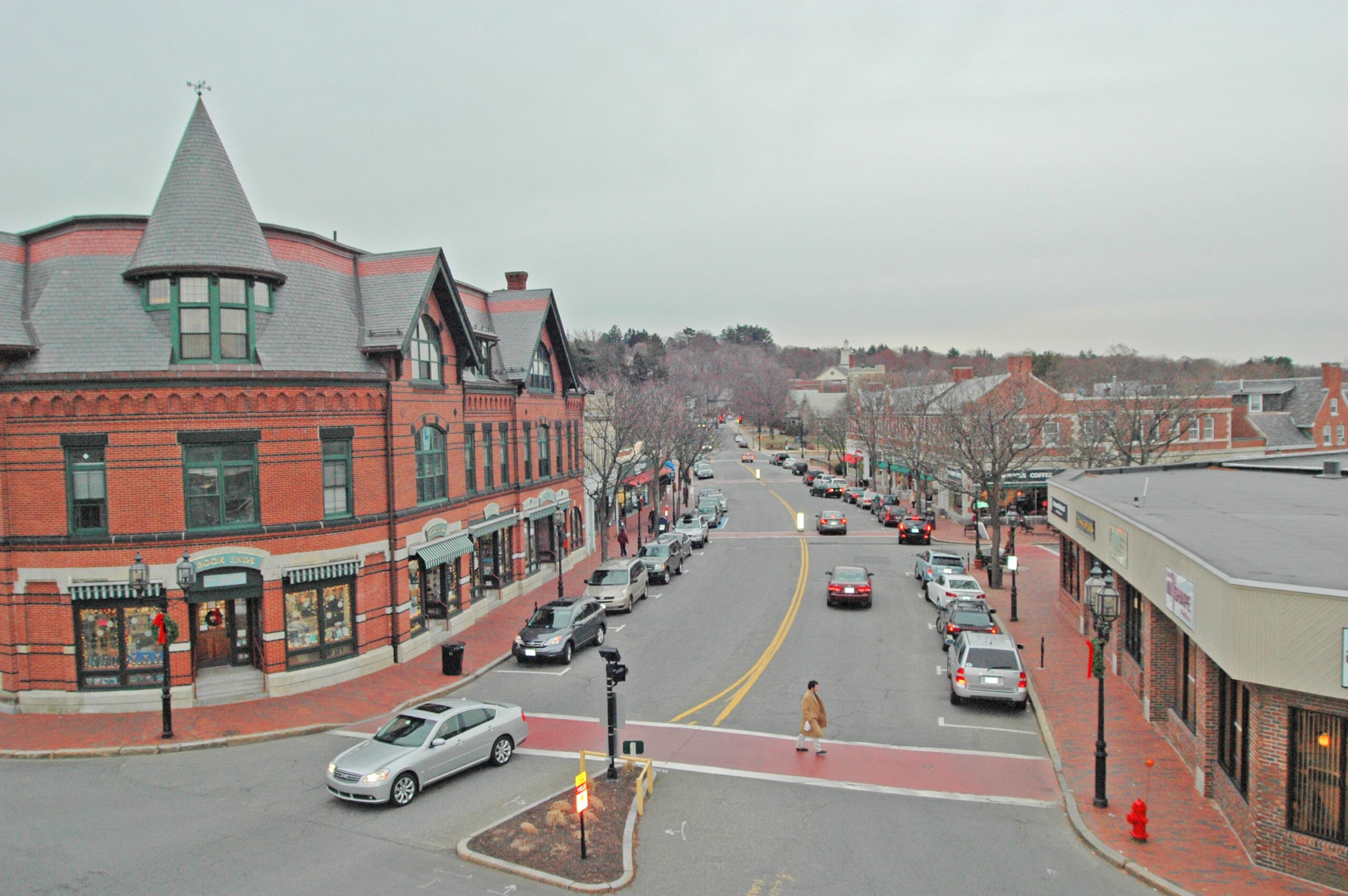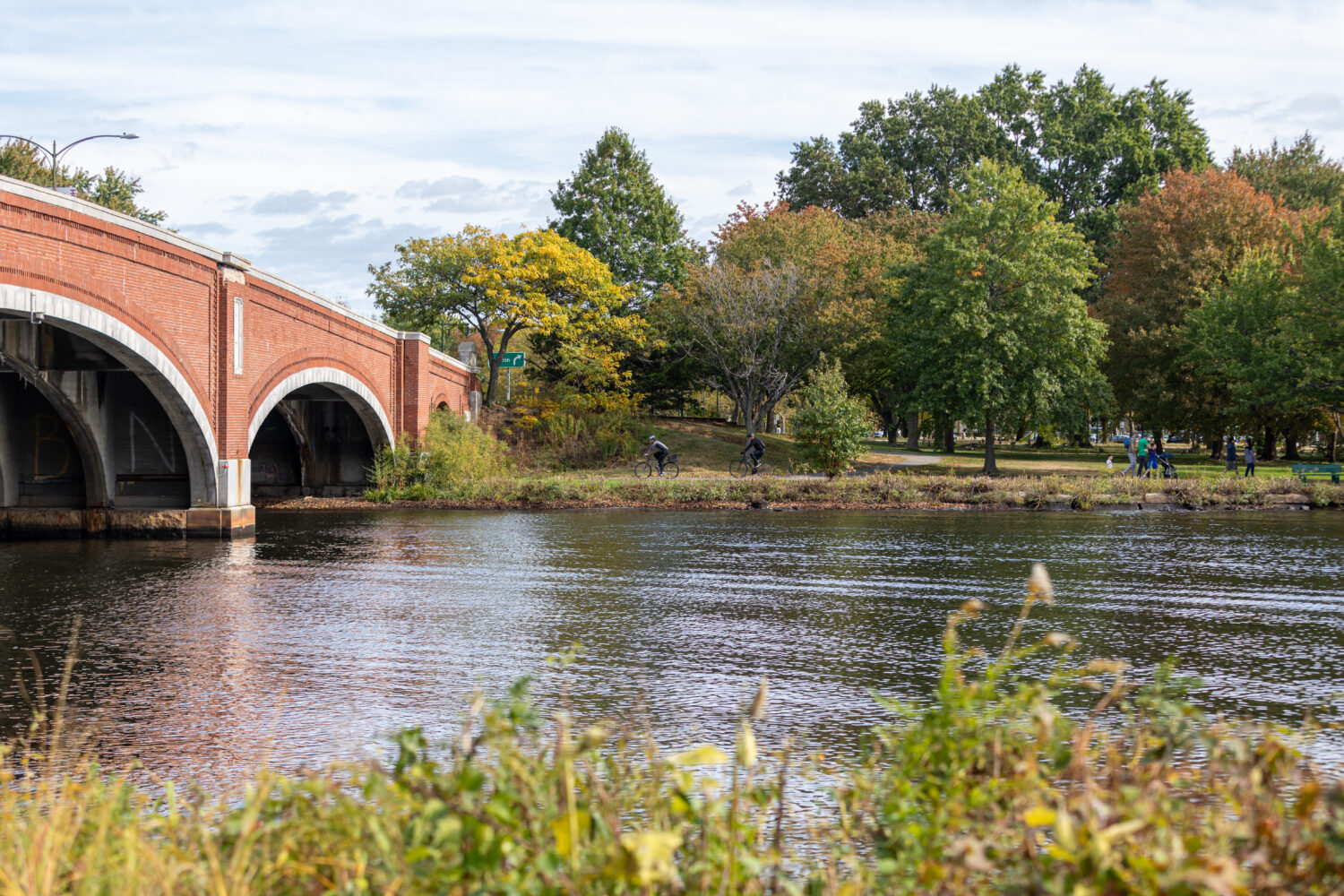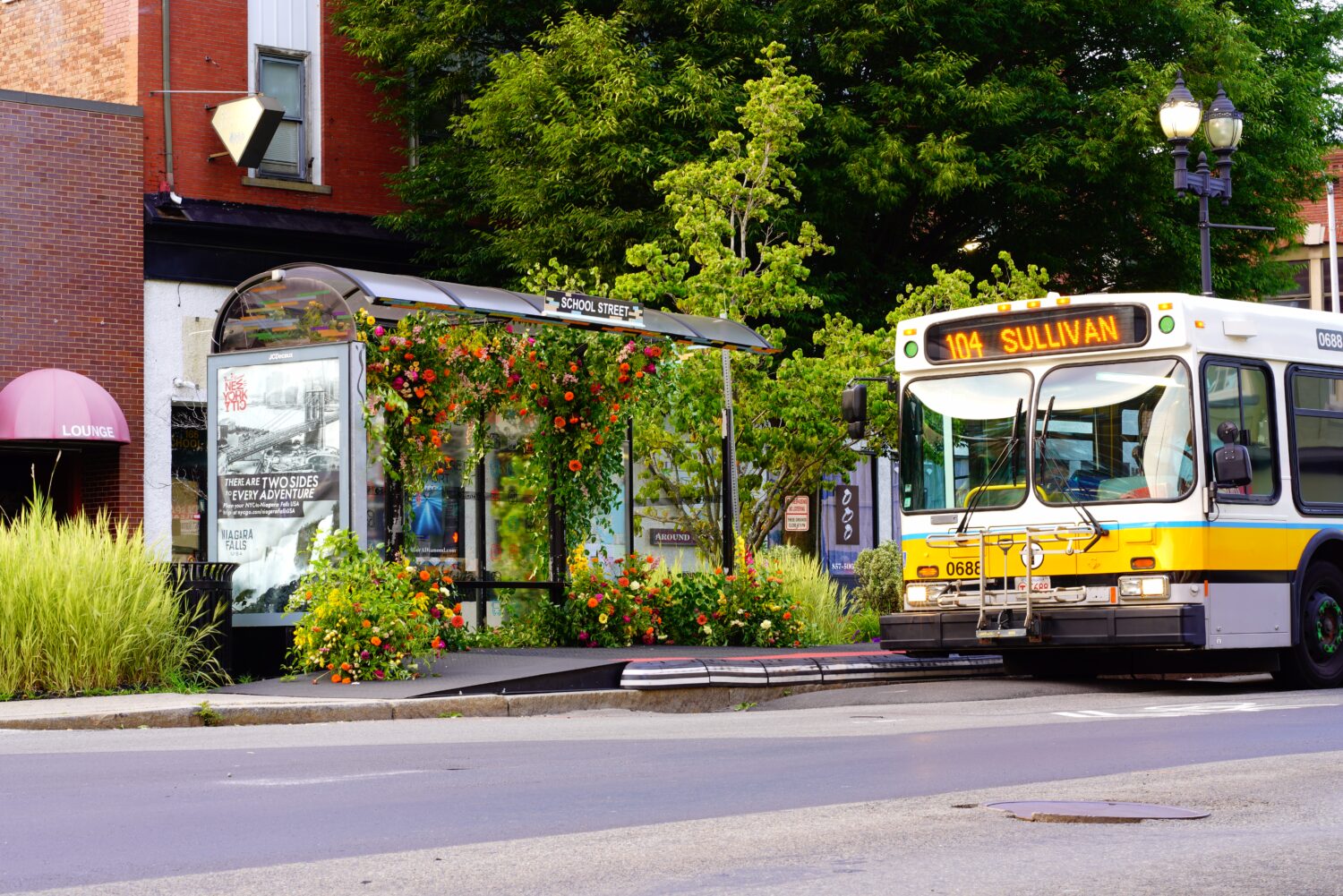Winchester, Massachusetts, has the kind of picturesque New England town center that both planners and movie directors dream about: several walkable blocks of Victorian brick buildings, a white-steepled church on a leafy common, and a commuter rail station with 10-minute service to downtown Boston.
The problem is that that the town center has been stuck in time like an old TV show. Its zoning rules are 40 years old. As a consequence, except for two small developments—11 luxury condos and a mini strip mall with a parking lot out front—nothing new has been built in the town center in over 30 years and, with limited foot traffic, local businesses struggle to stay afloat.
Worse still, rising housing prices threaten to close the door on both the young people who grew up in town, as well as the aging Boomers who raised families there. The median home price rose to nearly $1,000,000 in 2015, and there are few rental apartments.
Reforming local zoning rules is one of the most challenging, laborious, and uncertain endeavors in Massachusetts. The fact that zoning changes require a two-thirds “supermajority” vote to pass raises the stakes—and the risk that years of work will be in vain. This is one of the reasons why Massachusetts struggles to build the housing and walkable places we desperately need.
Yet, just a few weeks ago, Winchester took a bold step to change course by approving significant re-zoning of its Center Business District. Much of the groundwork was laid over the last four years through the Massachusetts Smart Growth Alliance’s Great Neighborhoods program, supported by the Barr Foundation and the Ford Foundation.
Great Neighborhoods is based on the idea that the best way to transform a place is to transform the way people work together.

Winchester was one of five flagship communities when the program launched in 2011. From the perspective of the Alliance, Winchester was a notoriously difficult community for development and an intriguing challenge. Until the mid-2000s, it had no planner on staff and had a lot of catching up to do. As a first step, the Planning Board and Town Planner Brian Szekely worked with the Alliance to develop a work plan that laid out long-term objectives for the town center and set a medium-term goal of changing local zoning. Alongside other support, the Alliance contracted experts to study floodplain issues, zoning, and historic preservation guidelines, and to develop communications recommendations.
Fast forward four years and what had seemed like a long shot turned out to be a slam dunk—the new zoning passed nearly unanimously. “The town meeting vote came in at 136-9,” said Planning Board Chairwoman Betsy Cregger. “The vote was overwhelming and a bit of a shock. We couldn’t have been happier.”
The new zoning for Winchester’s Center Business District will make it worlds easier to advance the kinds of projects local businesses know they need to thrive, including more housing and mixed-use buildings to increase foot traffic—and including more affordable housing that makes it possible for young people and retirees to stay in the town they love.
The Town owns a key parcel of land next to the train station, which could become the first new mixed-use transit-oriented development project. Property owners see potential to convert gas stations or strip plazas to higher density, and even older buildings that are currently single-story could be restored to their original three or four-story height with housing and office space above retail.
“Until new developments occur, there is little information that would tell us it’s a true success,” he continued. “However, there have been several town center property owners who have already come into the Planning Department with their architects to determine the best course of action, so there is definite interest in what we’re trying to accomplish.”
This was a big win for Winchester, and a terrific model for other towns wanting to unleash the potential of their downtowns.Along the way, many factors and many actors contributed to success. I’ll highlight three that stand out for me:
- Use visuals to inspire and make the possibilities tangible. One of the key decisions in the campaign was to invite three architectural firms to create designs for a Town-owned parking lot next to the train station that exemplified the walkable, mixed-use growth that Winchester envisioned. On display at a series of public meetings, this work helped residents and businesses visualize the real possibilities and generated enthusiasm.

Be clear about goals, and communicate them many times, in many ways. “In the end,” said Town Planner Brian Szekely, “it came down to communicating our goals and showing how the zoning code reflected those goals. Getting the word out was one of the most important keys to our success. Leading up to Town Meeting, we had a webpage, used social media, held five community meetings in three months, as well as several newspaper articles that helped get our points across to many people in many different formats.”
Go for all, all, and all. “The best part of the process for me was getting all of the boards and committees who are involved with the Center Business District to actually start talking with each other,” said Town Planner Brian Szekely.
“In many of the meetings, whether it was the Design Review Committee, or the Historical Commission, or the Housing Partnership Board, there was a level of confidence that we all had when speaking with the public because we came off as a united front. All were involved, all participated, and although we had different goals, we all met in the middle.”




